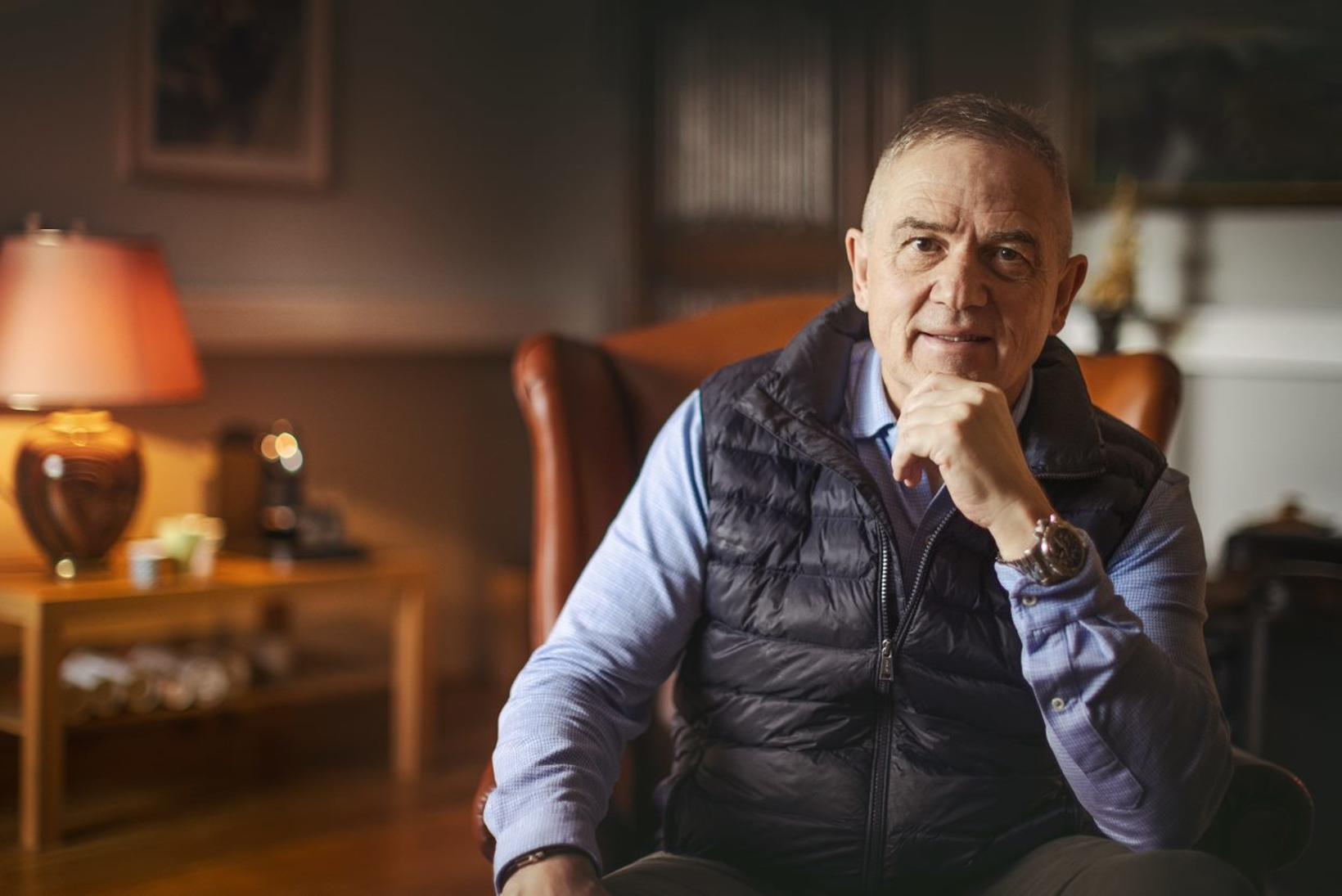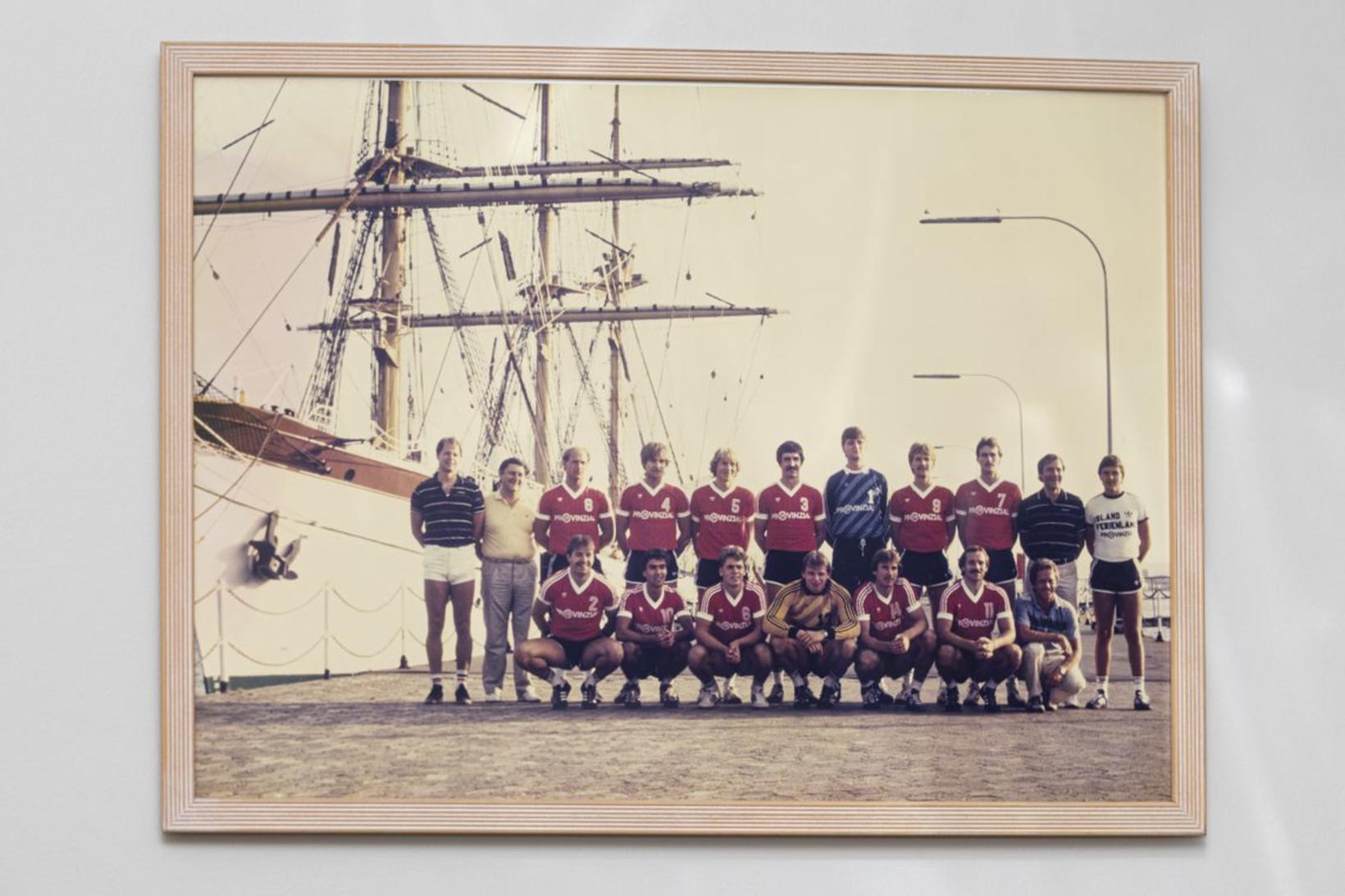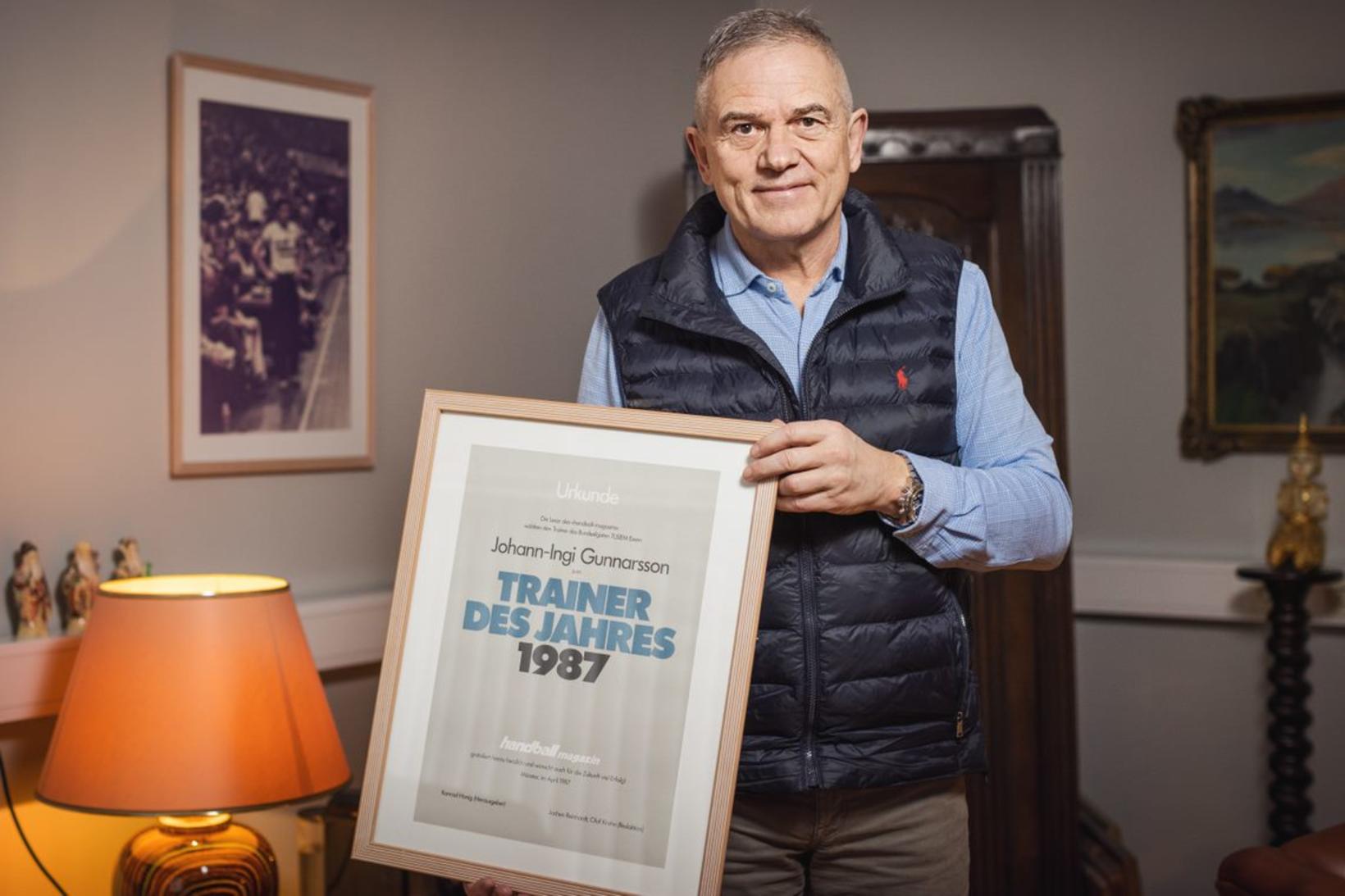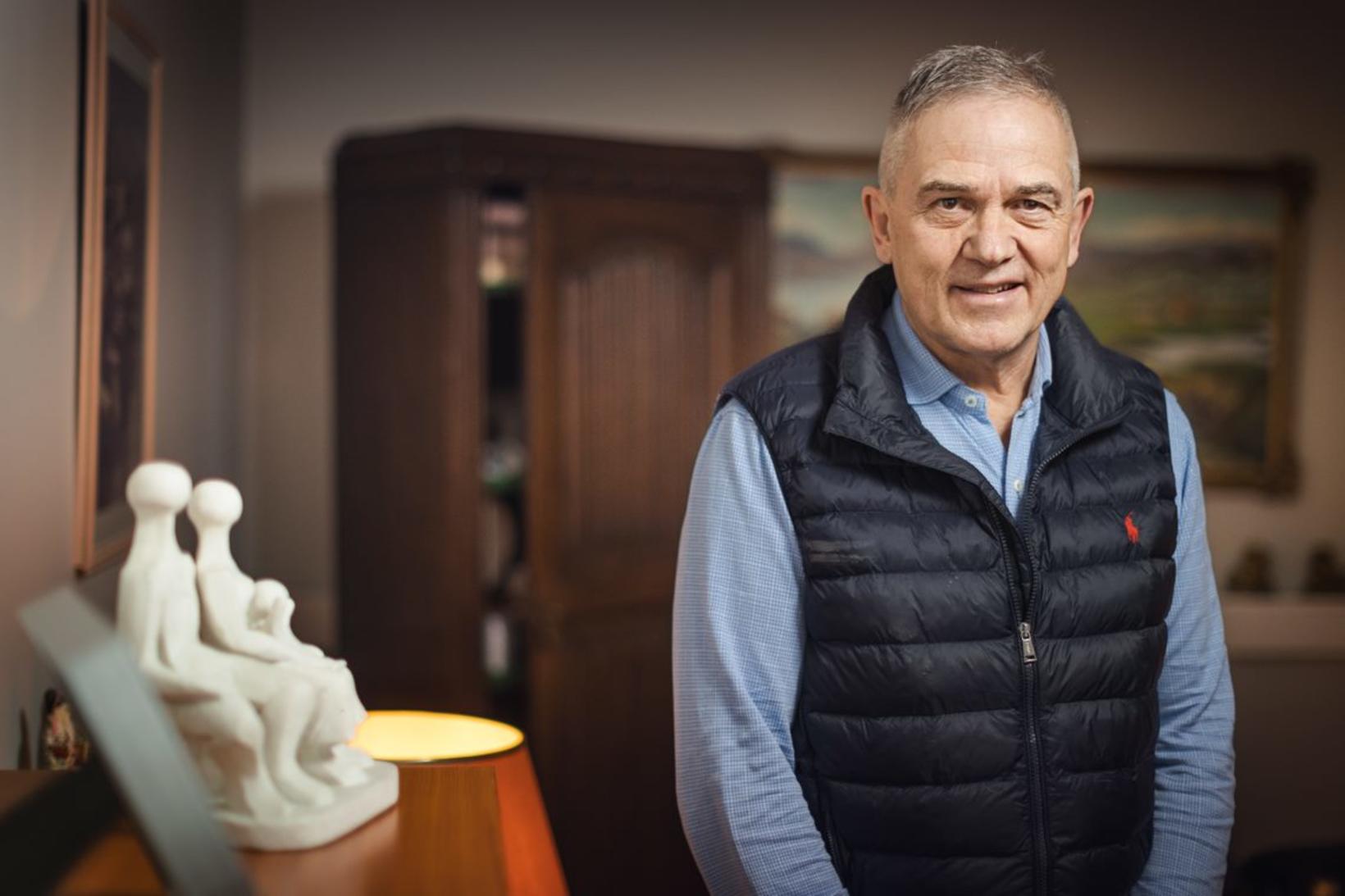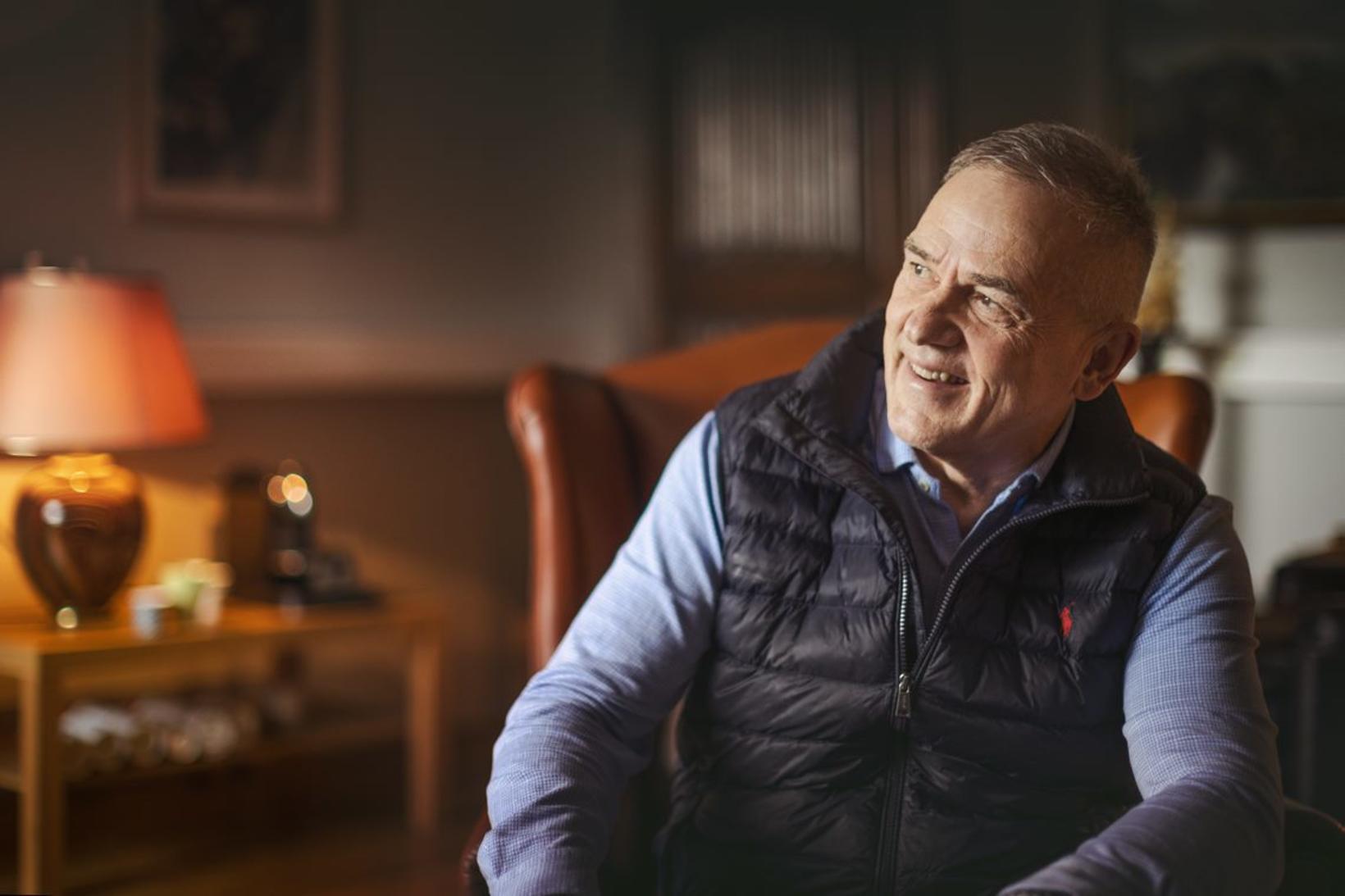The key to success: Iceland’s leading sports psychologist on building mental muscles
When talking to Johann Ingi Gunnarsson, one usually experiences a moment of enlightenment. "Turn the lights on" is one of the favorite phrases of the former handball coach, who has now become one of the most sought-after (sports) psychologists in Iceland. Top athletes and top managers rely on his advice. Here he shares his recipe for success, which he brings from Iceland to the whole world.
Beijing 2008: For the first time, an Icelandic team wins a silver medal at the Olympic Games. For Jóhann Ingi Gunnarsson, it is no coincidence that the handball players of the tiny sports nation made it to the big final.
Once Iceland's youngest national coach (1978-1982), he was by then involved as a mental coach in the greatest success in Icelandic team sports so far - and literally changed the players' mentality in the first preparation meeting. "I asked the guys if they were ready to take responsibility for their mentality," he says as he stands up and goes to the light switch. When the entire team agreed, he pushed it, and the room brightened up. "So from now on, it means that you come to every training, every meeting, and every game with the lights on" he said. The spark that carried the handball players to the final against record champion France (23:28 loss) was ignited.
Mindset. For Gunnarsson, this is the key to success. In all areas of life. "It’s something you can control,” he says. "Who doesn't set his mind will be controlled by his mind.”
But how do you control your thoughts when the opponent seems invincible, when the argument at home weighs you down, or when you're just tired? "Healthy self-confidence is the foundation for mental fitness. So, I always start with that," says the 68-year-old. "Those who trusts themselves can deal with all people and situations - and is better under stress." Doubts and setbacks are normal, in sports as well as in everyday life. The crucial thing for success is only how you deal with them.
Gunnarsson likes to give his clients the homework of writing down three things they felt were good about their day, along with a reason, every evening. The content is irrelevant to the psychologist. "It's about people focusing on something positive. It's incredible what that can do."
Another method he calls the "one-percent exercise" works like this: you decide to improve something in your life by one percent every day. "Instead of coming home and complaining in the evening, I know that I was one percent better today than yesterday. After three weeks, you automatically feel more confident."
A feeling that can be summoned at any time with enough practice. "Confident appearance is a choice. It can be trained like a mental muscle," says Gunnarsson.
A golfer he coached relies on a checklist to prepare for competition. It ends with the mantra "Bring it on." "Preparation is key to performing," says Gunnarsson. "If you feel well prepared for a challenge, you can look forward to it."
He himself - like the handball players in 2008 - likes to use the image of the light switch to get into success mode. "Everyone has to define for themselves what exactly that means, whether it´s active listening or full commitment on the playing field. The important thing is to be fully present. If you know what this state of mind feels like, you can always switch it on with some practice."
"With the lights on" - this idea is what Gunnarsson believed to have read in the book "The Winner Within" by US basketball legend Pat Riley. The nine-time NBA champion and current president of the Miami Heat is Gunnarsson’s " great role model." A few years ago, the Icelander met Riley by chance in a hotel in Palm Beach. Because Riley wanted to intensify the sports psychological work in Miami, the encounter ended with a shared breakfast and Gunnarsson telling him about his work with the light metaphor. Riley's reaction? "I've never heard of that before - but that's brilliant! Can I use it for the Heat?"
Of course he was allowed to. Just like the handball players of German club VfL Gummersbach, where Guðjón Valur Sigurðsson, a former player of Gunnarsson, is the coach. Or the international top referees whom Gunnarsson prepares for their assignments at European and World Championships. "Anyone can use this sentence, I do it every day. I turn myself on and off," he says.
It all sounds so simple in theory. But what if it doesn't work right away? Step one, according to Gunnarsson: turn off negative thoughts. "Mistakes are attempts that didn't work out," he says, and also has an fitting image at hand: "How does a child learn to walk? It falls down and gets back up, falls down, gets up, falls down, gets up - until it walks."
Infobox
Jóhann Ingi Gunnarsson began his career as a handball coach at the age of 16 at Knattspyrnufélagið Fram in Reykjavík. At 23, he took over the Icelandic national handball team, and at the age of 28, he moved to the German Bundesliga to THW Kiel. He led the then mid-level club to two runner-up championships during his four years there (1982-1986) and thus contributed to the club's rise to the top. In 1986, he was named Coach of the Year in Germany. In addition to his work with the current German record champions, Gunnarsson studied psychology at the Christian-Albrechts-University in Kiel and developed the "Kiel Counseling Model" with Professor Uwe Grau and his assistant Jens Möller. Gunnarsson then moved to the reigning German champion TUSEM Essen and won the championship twice in three years there. In 1989, he returned to Iceland. After coaching handball teams in Reykjavík and Hafnarfjörður, he focused on his work as a psychologist and mental coach. He runs a practice in Garðabæer near Reykjavík, gives lectures all over the world, and, together with his siblings, owns an import company. No matter how busy he is, there´s one "client" he always finds the time to work with: "If the national handball team needs me, I never say no."

